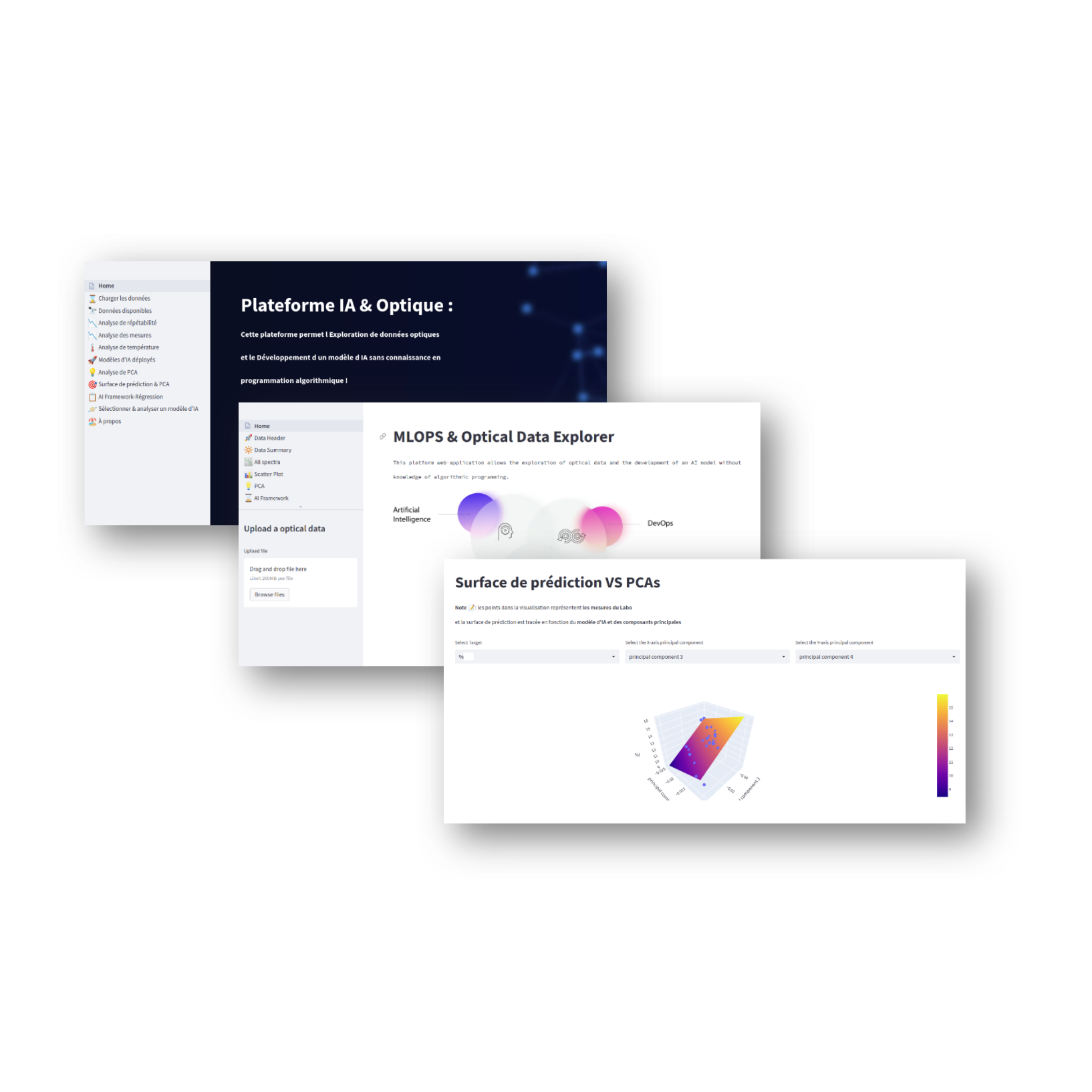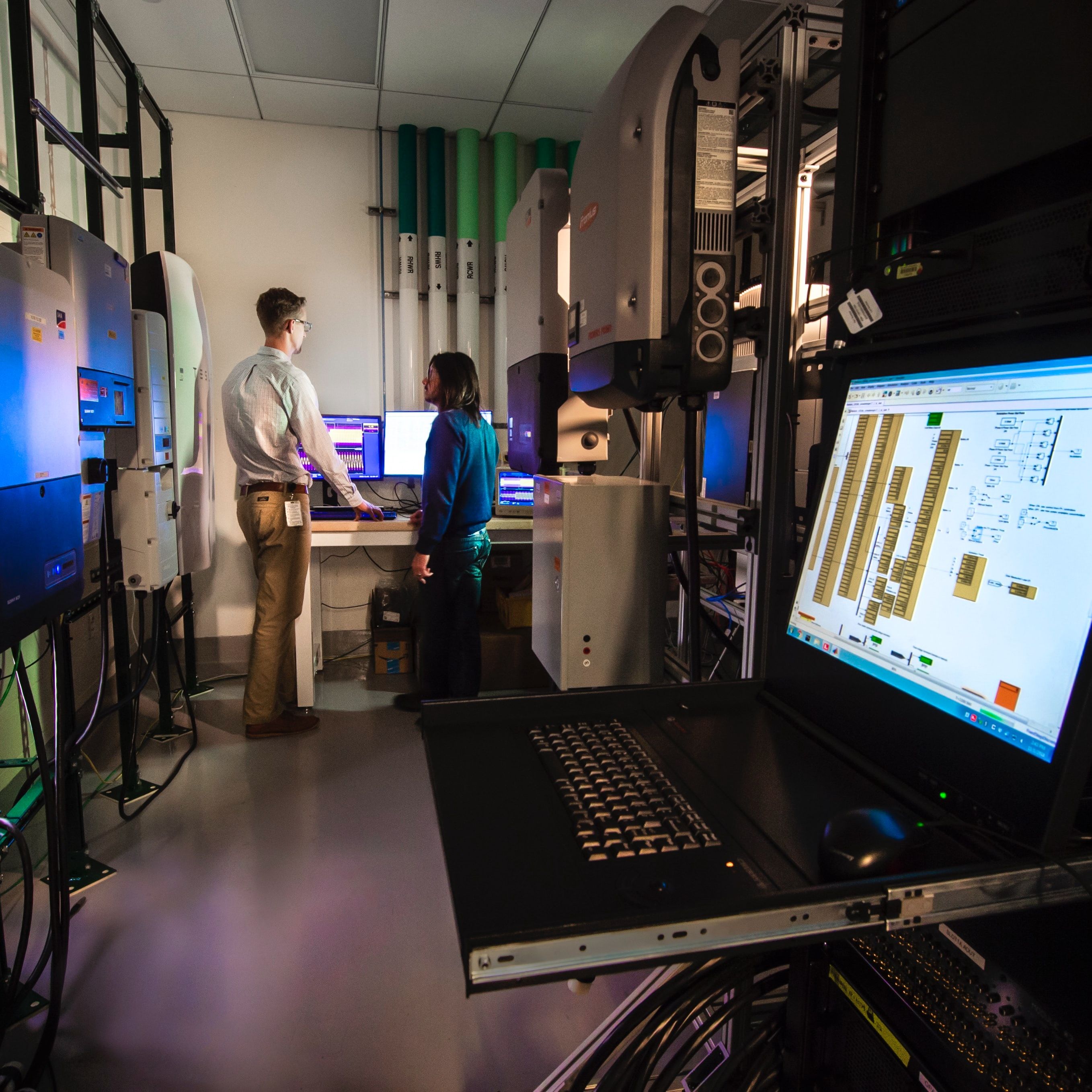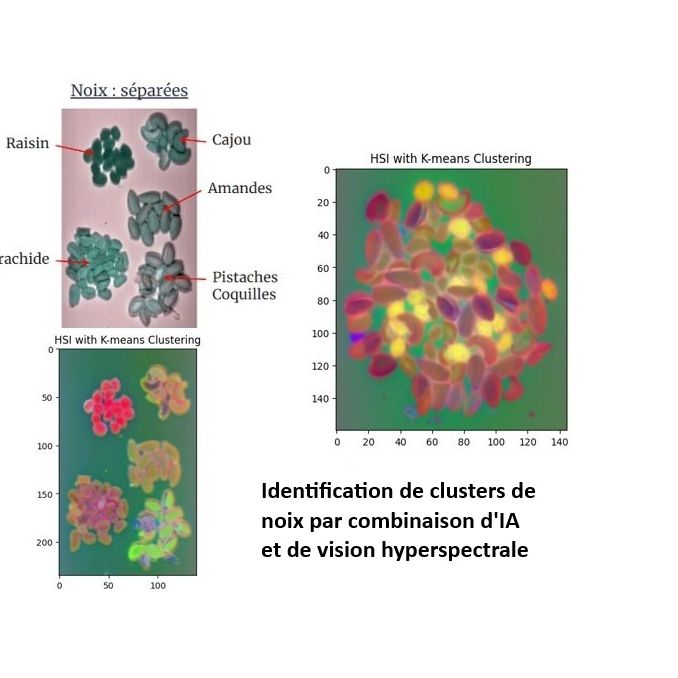Optical AI
The Optech Approach
Optech’s AI-Optics services help you develop your optical prototype and extract tangible results using AI combined with the physical principles behind the data obtained.
Optech’s approach is to embed a physical interpretation into AI models in order to create a direct link with the prototype under development and enable its optimization. This differs from AI analyses driven by large amounts of data, which are especially useful when the underlying physical principles in fundamental research are less well understood.
We handle both the design of optical, optomechanical, optoelectronic, and software components, as well as AI-based analysis methods. We specialize in developing optical systems designed for artificial intelligence applications, integrating both hardware and software considerations from the very first design phases.
Our optics expertise allows us to prototype custom optical equipment, with full control over data sources and quality to ensure the success of AI integration in your operations.
Our AI expertise enables us to create and develop models adapted to the physical nature of the data generated by your new prototype, providing value-added insights to optimize your operations, processes, or products. Our experts work alongside you to design the right strategy and provide access to the appropriate tools to achieve your digital transformation.

Our Services and Expertise
- An online AI-Optics platform to handle data and easily visualize results
- Support in selecting hardware and building physical prototypes to optimize data capture and ensure high-quality data production
- Software optimization for better data processing
- Knowledge transfer through coaching or code review, with possible funding opportunities

How can AI enhance your projects?
- AI can reduce the amount of hardware needed to perform the same operations. Your projects can quickly become more cost-effective in use or production, or simply gain in portability and simplicity.
- AI can leverage expensive and complex technological systems to develop a solution tailored to your needs that is less costly and less complex.
- Integrating AI into your systems enables the processing of multiple data sources simultaneously, making your system more efficient and less complex than a network of non-intelligent systems.

Are you already using artificial intelligence?
Optech can integrate with your team’s work to:
Build and optimize a prototype for high-quality physical data acquisition
- Improve input data quality for processing by your AI model
- Generate better training data for your AI model
Perform audits and optimizations of your existing physical data acquisition system
- Select cameras, lenses, and lighting systems with a major impact on data quality and result reliability
- Identify instruments or processes to simplify in order to reduce costs
AI Projects: A Matter of Data
The Importance of Data Quality
Optech has an in-depth understanding of how data are measured and collected at the hardware level, enabling optimal data processing.
Optech is an expert in numerical analysis and artificial intelligence applied to data from optical systems, including:
- Vision systems (2D, 3D, hyperspectral, etc.)
- Dimensional digitization (3D)
- Spectroscopy (absorption, transmission, surface, Raman, etc.)
- Optical sensors for various sectors (aerospace, quantum technologies, telecommunications, environment)
This expertise allows us to:
- Co-develop both the physical (hardware) and algorithmic (AI) systems simultaneously to obtain the cleanest possible data and speed up processing by minimizing data cleaning and classification time.
- Frame AI analysis within the physical limits of observed phenomena (physics-based AI) thanks to our multidisciplinary team of physicists, optical engineers, and programmers specialized in vision, AI, and automation. This approach enables faster convergence toward realistic solutions and avoids biased or erroneous interpretations.
Addressing the Data Scarcity Challenge
The difficulty of obtaining representative physical samples of specific characteristics impacts both the quantity and quality of data usable for AI — to the extent that training datasets may be incomplete. By nature, these unique characteristics are rare and seldom occur naturally in physical systems.
Our expertise and tools in physics-based optical and photonic numerical simulations allow us to reproduce operational conditions and generate highly realistic synthetic data — faster and at lower cost.
We aim to demonstrate models or system prototypes in numerically simulated environments. Demonstration and qualification in digital operational environments are carried out through the creation of phantoms and simulated numerical data. This accelerated development of AI-ready synthetic data maturity in turn speeds up the traditional technological readiness process.